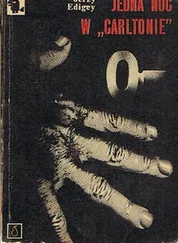“You will forgive me, Mrs. Chief,” he would say to Mother, “but according to our carol,” Mr. Trąba didn’t quite speak, didn’t quite sing, “‘Give Lord God a joyous evening, joyous night, first for the lord.’ So here for you, Chief, instead of the proverbial Christmas Eve brandy I bring paschal slivovitz, ergo paschal Christmas Eve brandy. And what would you say about a drink stamped with such an eschatological oxymoron? Paschal Christmas Eve brandy! What would you say? ‘Give, Lord God, a joyous evening, joyous night, first for the lord, then also for such a lady.’ Mrs. Chief, please be so kind as to accept this small expression of homage from a suffering admirer, who, the more often he sees you — you will forgive me, Chief, but the late Sigmund Freud taught you, too, that the suppression of the life of the impulses turns against you — and so, Mrs. Chief, a small expression of homage from an admirer who suffers tortures, such that, the more he sees you, the greater the tortures he suffers.”
And Mr. Trąba handed Mother the neatest little package, and she delicately undid the little ribbon and half-opened the paper, and with a girlishly lit-up face she examined a tiny little bottle of “Chat noir” perfume and a dark green silk scarf that suited her perfectly.
“‘Give, Lord God, a joyous evening, joyous night,’” now Mr. Trąba was singing with full voice, “‘First for the lord, then also for such a lady. And for his dearest servants. And for his dearest servants.’”
And Mr. Trąba would turn to me, and invariably he handed me a book.
“This, Jerzyk, is currently the most widely read book in People’s Poland: The Ugly Duchess by Lion Feuchtwanger. As literature, it is rather mediocre stuff and every bit the popular sort, but of course we ought to proclaim eternal glory to Comrade Gomułka for expressing his consent to the publishing of a novel that was, without a doubt, absolutely unintelligible to him. As I say, Jerzyk, this is not great writing, but when on the first and second days of Christmas you sit down, well stocked with nuts and sweets, next to the well-lit furnace, you will have this appropriate, relaxing, and even, in some minimal degree, edifying reading.”
“Between the city of Innsbruck and the monastery of Wilten a large open piece of level ground was covered with tents and flagpoles,” I read the first sentence of The Ugly Duchess . Father stared at the Hebrew alphabet on the violet-golden book jacket.
“Sit down, sit down, sit down,” Mother always called out three times as she hurried to the kitchen.
•
But this time, as soon as Father began, with desperate passion, to speak his threefold “I know, I know, I know,” Mother — already after his first “I know”—said, “Sit,” and with classically feminine thoughtlessness, she destroyed the entire finely-wrought construction of mythical repetition.
“Sit,” she said. “Have you already forgotten what happened last year? He’ll go,” and she looked at me. “Put on your hat, coat, and gloves, and go get Mr. Trąba. You know where Daddy’s Siamese brother lives? Beyond the Protestant Hall on the left.”
The humiliating supposition that I might not know where Mr. Trąba lived didn’t even particularly sting me. It was probably the first time that I had stood in for Father in a crucial matter, and I put on my hat, coat, and gloves, trying to lend an unhurried male decisiveness to my gestures. In fact, last year Father had gone out for Mr. Trąba, and, after a good hour, Mother whispered with whitened lips, “They have both disappeared for all eternity.” And when after an eternity they finally appeared, they were drunk as lords, joyous, and inordinately roused intellectually.
“All the best, Chief,” Mr. Trąba leaned over the table like Pastor Potraffke over the edge of the pulpit. “Lord Jesus has already begun His reign, Chief, although this is still hidden from the eyes of Comrade First Secretary Władysław Gomułka, just as in days of old it was hidden from the eyes of Caesar Augustus. But both of them, both of them, Chief, both Caesar Augustus and Secretary Gomułka already serve Lord Jesus. It was said by the prophets that the Savior would be born in Bethlehem. And whose doing was it that the Holy Family found itself in Bethlehem? It was the doing of Caesar Augustus, who gave out the decree, for if he hadn’t given out the decree, Joseph and Mary would certainly have remained in Nazareth. And just as the great Caesar Augustus had to serve Christ with his decree, contributing to the fact that His birth happened in Bethlehem in accordance with the prophecies, so also First Secretary Władysław Gomułka has to serve Christ by raising the price of boneless beef, contributing in this very way to the fact that, in accordance with what was said by the prophets, Communism will fall. . All the best, Chief.”
The communion wafer, dipped in honey, shook dangerously in Mr. Trąba’s restless fingers. Mother looked at the drop that was falling onto the table cloth as if she wished to cut off its flight with some desperate motion, or perhaps to turn back the course of events the prophets had foretold.
•
I breathed in deeply. The snow had unexpectedly stopped falling, and in the sudden motionlessness you could hear the regular blows of the axes that came from the forests on Buffalo Mountain. Someone was laughing there with an unbridled pagan laugh. Someone wastefully started and stopped an engine. In the depths of the perspective that was brightening like the Milky Way, beyond the Rychter Department Store, beyond the Baptists plunged in darkness, loomed Mr. Trąba’s silhouette, ambling with its characteristic wobbliness.
The Rychters were sitting around an oval table in the dining room on the ground floor. In the corner, a Christmas tree as large as a royal sailing-ship burned with a thousand candles. Through the high, unveiled windows I saw the incredible figure of Mrs. Rychter gliding in from the kitchen. She carried a tureen full of barszcz or mushroom soup raised up in her athletic arms.
“Merry Christmas, Jerzyk,” said Mr. Trąba. “To tell you the truth, after last year’s excesses, I was expecting that you and not the Chief would come out to meet me. But ‘Give Lord God a joyous evening, joyous night’—what sort of excesses were they anyway? In the end we made it to matins, if memory doesn’t fail me. And if it is about the excessive theological freedom that takes possession of me in such situations, I can’t do anything about it. I am, Jerzyk, a truly lonely person, and all forms of the presence of God make special , sometimes downright troublesomely inspiring , impressions on truly lonely people.”
The gate leading to the Rychter Department Store suddenly opened. The bulky figure of Mrs. Rychter appeared. Her arms were still raised up. At first, I thought that she was still holding up the steaming — no, no longer steaming, but now also flaming — tureen of barszcz or mushroom soup. A gigantic flame, in the shape of a conifer, blazed from the tureen. The beautiful Christmas tree, majestic like a royal sailing-ship, burned over Mrs. Rychter’s head. You could hear the closer and closer barking of a St. Bernard, huge like a specter, returning from a futile chase. The greedy roar of the fire. Ornaments were bursting. The angel hair was sizzling. Mrs. Rychter ran with heavy leaps through the deep snow, like a bemedalled record holder who is supposed to carry the sacred flame to the Olympic arena. She made two, or maybe three circles, stopped over a great pile of snow, and, holding the gigantic torch with both hands, she began to beat the ground with it furiously, rhythmically, as if she wished to flog the disobedient elements with the fire and the glass.
Читать дальше












